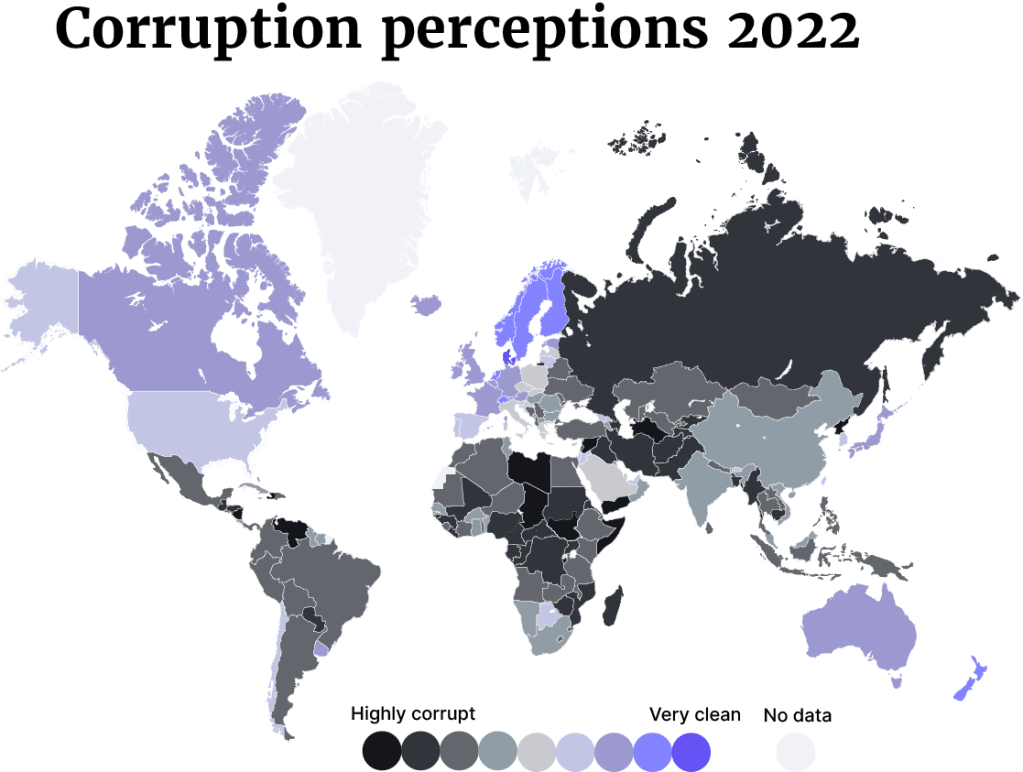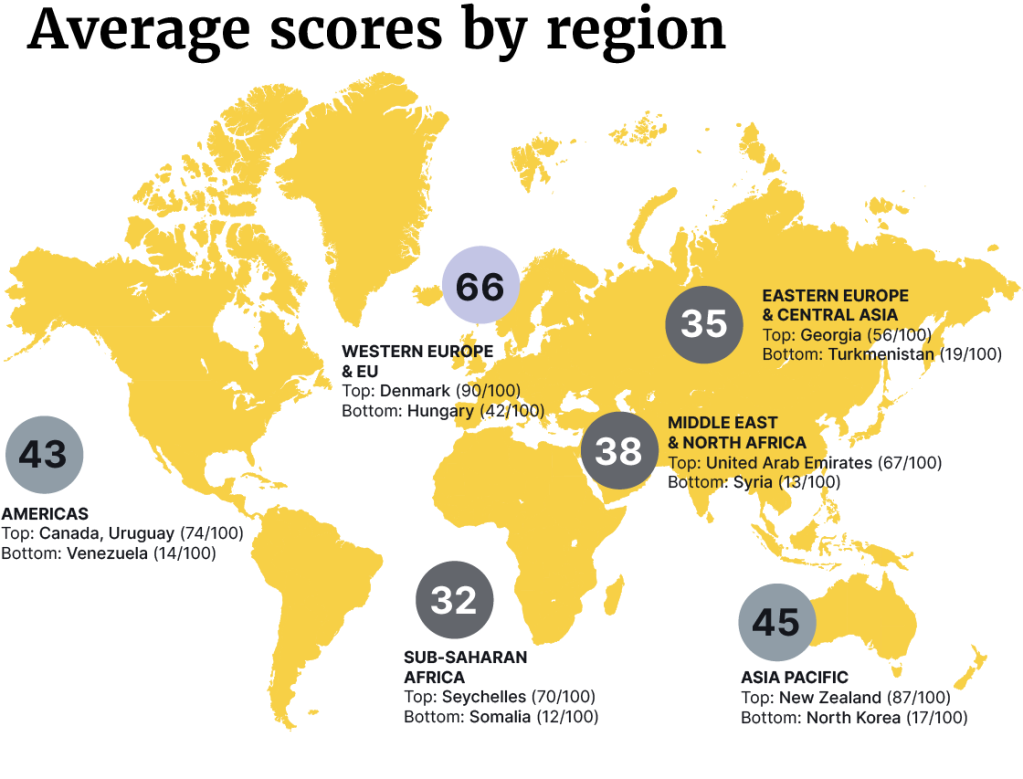Transparency International has published its annual Corruption Perception Index (CPI), which draws on a number of disparate sources to assign a rank to 180 countries around the world, scoring them on a scale ranging from 0 (highly corrupt) to 100 (very clean).
The report makes for sobering reading, revealing that, in the last five years “only eight countries have significantly improved their scores, and 10 countries have dropped significantly”. There has been no improvement to the scores of 90% of the countries in the report, which paints a picture of stagnation in global efforts to fight corruption and its resulting detrimental impact on economies.
Sub-Saharan Africa
Most worryingly, the lowest scoring region is sub-Saharan Africa. Africa more broadly will account for 25.6% of the world’s population by 2050 (vs the 17.2% share in 2023), with sub-Saharan Africa contributing a significant proportion of that growth total. With “deepening inequalities and increasing corruption risks” in many countries the region is ill-prepared to provide for and protect its youthful and growing population. Social unrest and continuous population movement seem almost inevitable as a result.
Given its potential detrimental impact on large projects, particularly in the area of infrastructure, corruption globally also has the potential of significantly slowing or even hampering efforts to fight global warming. This is particularly true of countries where high levels of corruption are coupled with highly vulnerable and, in many instances, rapidly growing populations.
Serbia
Also of real concern to compliance professionals specifically will be the deteriorating situation in countries such as Serbia, included as a brief case study in the report. Serbia “has been slow in addressing organised crime” with key institutions “lacking adequate resourcing and independence” and with the judiciary “heavily influenced by political players”. Although Serbia is being singled out, its challenges are emblematic of the debilitating problems facing many other countries, making doing business with entities and individuals located in them more challenging.




